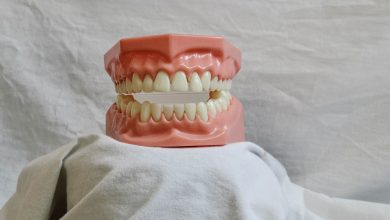Dental Implants: Ultimate Guide to Restoring Your Smile 2024

Dental implants are a popular and effective solution for replacing missing teeth.
Why Dental Implants Matter
Dental implants matter because they are a revolutionary solution in restorative dentistry. By understanding their benefits, one can see how they significantly improve quality of life. Dental implants provide a long-lasting and natural-looking solution for missing teeth. They restore the ability to chew and speak, adequately enhance facial aesthetics, and boost self-confidence.
Unlike removable dentures, implants are securely anchored in the jawbone, preventing bone loss and preserving facial structure. Additionally, they eliminate the inconvenience and discomfort associated with traditional dentures. With dental implants, individuals can enjoy a restored smile and the freedom to eat, speak, and live without limitations.
Experience the life-changing benefits of dental implants and regain your oral health and overall well-being.
Dental Implant Process
The dental implant process begins with an initial consultation to assess your candidacy for dental implants. During this consultation, your dentist will evaluate your oral health, bone density, and overall medical history to determine your suitability for dental implants.
This step is crucial, as it helps ensure the procedure’s success. Once deemed eligible, you will move on to prepare for dental implant surgery. This involves taking dental impressions, X-rays, and maybe a CT scan to create a personalized treatment plan.
The surgery itself is performed under local anesthesia. Following a several-month healing period, your dentist will carefully place the dental implant in your jawbone. Afterward, a custom-made dental crown is attached to the implant, restoring the function and appearance of your missing tooth.
The dental implant procedure provides a long-term, natural-looking solution for replacing missing teeth.
Dental Implant Materials And Types
Dental implants are a popular dental restoration option for replacing missing teeth. There are different types of dental implants with varying materials used. The choice of implant material depends on your specific needs and preferences. Some common materials used in dental implants include titanium, zirconia, and ceramic.
Each material has its pros and cons, which should be carefully considered. Titanium implants are durable and biocompatible, while zirconia implants are known for their aesthetic appeal. Some patients prefer ceramic implants because they are a metal-free alternative.
When deciding on the correct type of dental implant, it is essential to consult with your dentist and consider factors such as cost, longevity, and overall oral health. Ultimately, the choice of dental implant material should be based on your circumstances and goals for treatment.

Credit: www.shahsdentalserenity.com
Dental Implant Aftercare
After undergoing dental implant surgery, proper aftercare is crucial for a quick and successful recovery. Maintaining good oral hygiene is vital; follow these dos and don’ts. Regularly brush and floss around the implant, avoiding excessive force. Rinse your mouth with an antiseptic mouthwash to prevent infection.
Be cautious while eating, opting for soft foods initially and gradually introducing solid foods. Avoid smoking or using tobacco products, as they can hinder healing. Long-term maintenance involves routine check-ups with your dentist and professional cleanings. It’s essential to follow these guidelines to ensure the longevity and health of your dental implant.
Dental Implant Cost And Insurance Coverage
Dental implant costs vary depending on several factors, such as the number of implants needed, the dental clinic’s location, and the procedure’s complexity. Insurance coverage for dental implants also plays a crucial role in determining the overall cost.
Before undergoing the procedure, it is essential to understand the different elements that contribute to the total cost. Factors like the type of implant, any additional treatments required, and the dentist’s expertise can affect the final price. Moreover, dental insurance policies may or may not cover dental implants, so it is necessary to review the coverage details of your plan carefully.
By understanding the costs associated with dental implants and your insurance coverage, you can decide on the best treatment options available.
Dental Implant Success Stories
Dental implants have genuinely transformed lives, as evidenced by the inspiring success stories of individuals who have restored their smiles through this remarkable dental procedure. These real-life experiences serve as powerful testimonials, highlighting the significant impact that dental implants have on self-confidence.
People have regained their ability to eat, speak, and smile confidently thanks to dental implants’ stability and natural appearance. The stories of these individuals showcase how dental implants have not only improved their physical appearance but also positively influenced their mental and emotional well-being.
These success stories remind us of the transformative power of modern dentistry and encourage others who may be considering dental implants to take the leap and embrace a life-changing solution.
Alternatives To Dental Implants
Dental implants offer a durable and long-lasting solution for missing teeth. But if you’re considering alternatives, there are a few options. One alternative to dental implants is a bridge, which can be suitable for some patients.
Another option is removable dentures, which can provide a temporary solution. When comparing these alternatives, it’s essential to consider the pros and cons of each. Bridges offer a natural appearance and are securely fixed in place, but they may require adjacent healthy teeth to be prepared.
Conversely, dentures are more affordable and offer flexibility, but they can be less stable and require maintenance. Ultimately, the right choice depends on your circumstances and preferences.
Dental implant surgery involves minimal pain and discomfort due to anesthesia and technological advancements. Dental implants are designed to last a lifetime with proper care and maintenance. However, longevity may vary based on individual factors such as oral hygiene and overall health.
Dental implants can be suitable for most individuals, but a thorough evaluation by a dental professional is necessary to determine eligibility. Factors like bone density and overall oral health play a role in determining whether someone is a suitable candidate for dental implants.
However, most individuals can benefit from this long-lasting and effective solution for replacing missing teeth.
Frequently Asked Questions Of Dental Implants
What Are the Downfalls of Dental Implants?
The potential disadvantages of dental implants include possible infection, nerve damage, or implant failure.
How Painful is Getting A Dental Implant?
A dental implant can cause mild to moderate discomfort during and after the procedure.
What Are the 3 Stages Of Dental Implants?
The three stages of dental implants are planning, placement, and restoration.
What Is the Best Age for Dental Implants?
The best age for dental implants varies, but generally, it is recommended for adults after skeletal growth is complete.
Conclusion
Dental implants offer a long-lasting solution to missing teeth, providing aesthetic and functional benefits. With their strong and secure integration into the jawbone, dental implants resemble natural teeth, allowing patients to regain confidence and enjoy a natural-looking smile.
Whether you miss one or multiple teeth, implants can genuinely transform your dental health and overall well-being. Not only do dental implants enhance your appearance, but they also improve your ability to speak and eat comfortably. Unlike dentures, implants eliminate the worry of slipping or clicking, enabling you to enjoy your favorite foods without restrictions.
Additionally, they help maintain the structure of your jawbone, preventing bone loss and potential facial sagging. Investing in dental implants is a decision that can significantly improve your quality of life. By choosing this long-term solution, you can regain self-assurance, restore oral health, and enjoy a confident smile for years.
So go immediately – consult a dental professional to determine if dental implants are the right option. Say goodbye to missing teeth and hello to a brighter, healthier future.






4 Comments